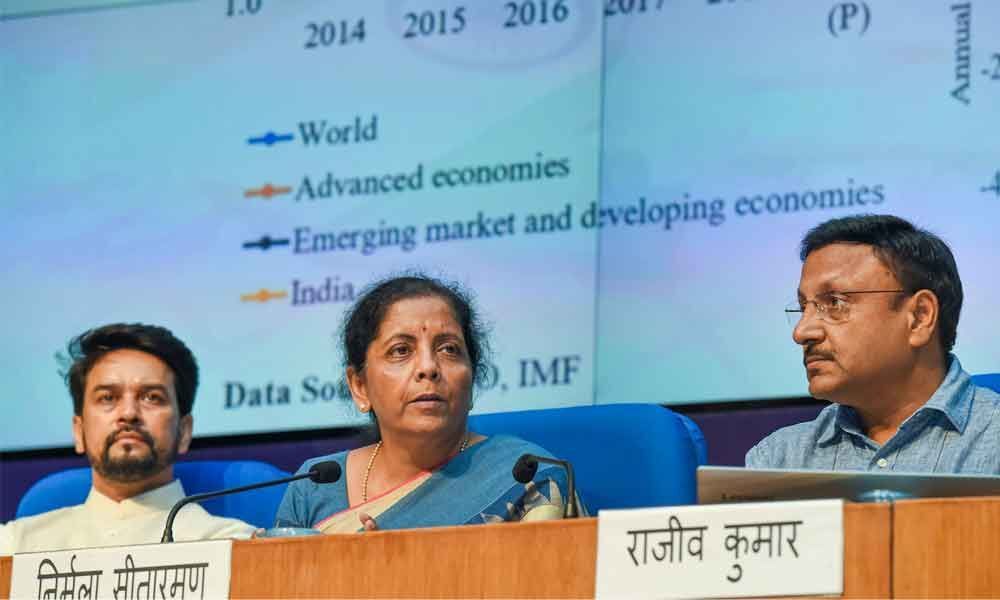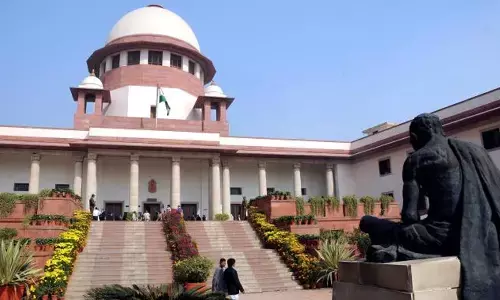No super-rich surcharge on FPIs: Finance Minister Nirmala Sitharaman

Buckling under pressure from overseas investors, the government on Friday rolled back the enhanced surcharge imposed on foreign portfolio and domestic investors in Budget 2019-20 as it announced a slew of measures to boost sagging economic growth.
New Delhi: Buckling under pressure from overseas investors, the government on Friday rolled back the enhanced surcharge imposed on foreign portfolio and domestic investors in Budget 2019-20 as it announced a slew of measures to boost sagging economic growth.
"In order to encourage investment in the capital market, it has been decided to withdraw the enhanced surcharge levied by Finance (No.2) Act, 2019 on long/short term capital gains arising from the transfer of equity shares/units," Finance Minister Nirmala Sitharaman told reporters here.
The move will dent government revenues by Rs 1,400 crore. Sitharaman had in her maiden Budget hiked the surcharge on income tax paid by super-rich individuals.
The surcharge, levied on top of the applicable income tax rate, was hiked from 15 per cent to 25 per cent for those with taxable income of Rs 2-5 crore, and to 37 per cent for those earning more than Rs 5 crore. This increased the effective tax rate for these two groups by 3.12 per cent and 7 per cent to 39 per cent and 42.74 per cent, respectively.
Some 40 per cent of foreign portfolio investors (FPIs) automatically came under the higher tax rate as they have been investing as a non-corporate entity such as trust or association of persons (AOPs), which in the Income Tax law are classified as an individual for the purpose of taxation.
"The enhanced surcharge on FPI goes, in simple words," Sitharaman said. "In other words, the pre-Budget position is restored." The super-rich tax on FPIs, along with lack of measures to boost the economy in the July 5 Budget, was largely blamed for foreign investors withdrawing more than $3 billion from the stock markets, putting pressure on indices and the rupee.
Sitharaman also announced exempting startups from the so-called angel tax. "To mitigate genuine difficulties of startups and their investors, it has been decided that section 56(2)((viib) of the Income Tax Act shall not be applicable to a startup registered with DPIIT," she said.
Also, a dedicated cell will be set up under a member of CBDT for addressing the problems of startups. "A startup having any income tax issue can approach the cell for quick resolution of the same," she said.
The surcharge in the Budget was increased on all income, be it from salary, savings, interest, mutual funds, stock market or trade in futures and options (F&O) segment, long-term and short-term capital gains, or other means and was applicable to all individuals and those who chose to be counted as an individual, be it funds, AOPs or trusts.
Asked when the withdrawal of the tax will become effective, Revenue Secretary Ajay Bhushan Pandey said the surcharge has been withdrawn for the entire fiscal year.
On the issue of how the withdrawal will be implemented, since the surcharge originally was part of the Budget and the accompanying Finance Bill which was passed by Parliament, he said necessary orders or notifications will be issued.
He, however, did not specify if this would be in the form of an ordinance to amend the Finance Bill, which will have to be later approved by Parliament.














